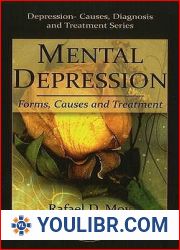
BOOKS - Psychodynamic Treatment of Depression


US $8.72

568732

568732
Psychodynamic Treatment of Depression
Author: Fredric N. Busch
Year: April 5, 2004
Format: PDF
File size: PDF 928 KB
Language: English
Year: April 5, 2004
Format: PDF
File size: PDF 928 KB
Language: English
The advent of multiple effective psychopharmacologic interventions and targeted psychotherapeutic treatments has led to remarkable progress in the treatment of depression. Yet despite this progress, the treatment of depression often continues to be a struggle. Psychodynamic psychotherapy - often used in combination with cognitive-behavioral, interpersonal, or medication treatments - is one approach to reducing the neurophysiological and psychological vulnerabilities that may predispose patients to persistent symptoms or recurrence of depression. Though books on other treatment approaches to depression abound, this insightful volume is unique because it offers a psychotherapeutic approach to the dynamics observed in patients with depression that can sharpen clinicians' skills in treating this disorder. Intended for use by students, residents, or clinicians who are trained in the practice of psychotherapy and in the diagnosis of depression, the book describes how to tailor the psychodynamic psychotherapeutic approach to the treatment of patients with depression. The authors use many vivid clinical case vignettes based on their clinical work to illustrate common dynamic constellations and techniques for engaging patients in depression-focused psychodynamic psychotherapy. Because a major disparity exists between the widespread use of psychodynamic psychotherapy in clinical practice and the few systematic studies of this treatment, the authors recommend using this approach mainly in patients with mild or moderate major depression and dysthymic disorder. Using a structure that facilitates learning how to apply psychodynamic psychotherapy, the authors Begin with an introduction placing psychodynamic psychotherapy within the context of current treatments for depression, including indications and contraindications highlighted by two case vignettes. Review psychoanalytic theories and research on depression to develop a core set of depressive dynamics. Focus on the techniques of psychodynamic psychotherapy as they specifically apply to treating patients with depression. Highlight techniques to help patients recognize their vulnerability to the dynamics that form the core of the depressive experience, and illustrate how to work with these dynamics to help patients better manage their vulnerability. Address topics of special concern in the psychotherapy of depression, including complex cases, treatment impasses, suicidality, and issues to consider when combining treatments. Useful for practitioners, students, and residents as a clinical guide for learning about psychodynamic psychotherapy and its adaptation for treatment of a specific disorder, this practical volume, with its fascinating clinical case vignettes, is also an invaluable text for courses on psychodynamic psychotherapy and psychotherapeutic treatment approaches to depression.














































